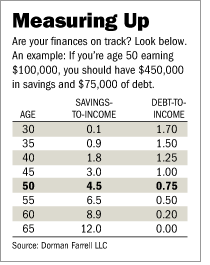So I was just thinking, lolling on the beach of mission bay with the family and I did some quick math in my head to realize we (DW and I) have made about $850,000 in our working lives. Our net worth is about $375,000 if you don't include the cars (which I don't since they depreciate to nothing eventually). I was actually pretty proud of the fact that of every dollar we have earned, 44% of them are still around, especially when you consider we've probably paid close to half of those dollars back in taxes.
Now sure, that doesn't tell the whole story, investment returns, capital/real estate appreciation, the effects of inflation etc. But it was a fun thought. Does that mean at some point I may have more money in net worth than I ever earned in my life? Of course, then we get into the debate of what I mean by "earn" (paycheck vs. return on an investment etc.)
Just letting my mind wander on a Sunday afternoon...
Now sure, that doesn't tell the whole story, investment returns, capital/real estate appreciation, the effects of inflation etc. But it was a fun thought. Does that mean at some point I may have more money in net worth than I ever earned in my life? Of course, then we get into the debate of what I mean by "earn" (paycheck vs. return on an investment etc.)
Just letting my mind wander on a Sunday afternoon...

